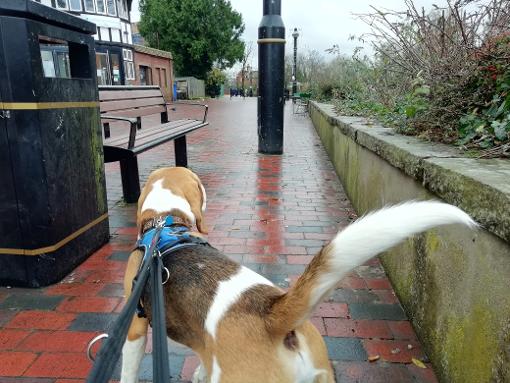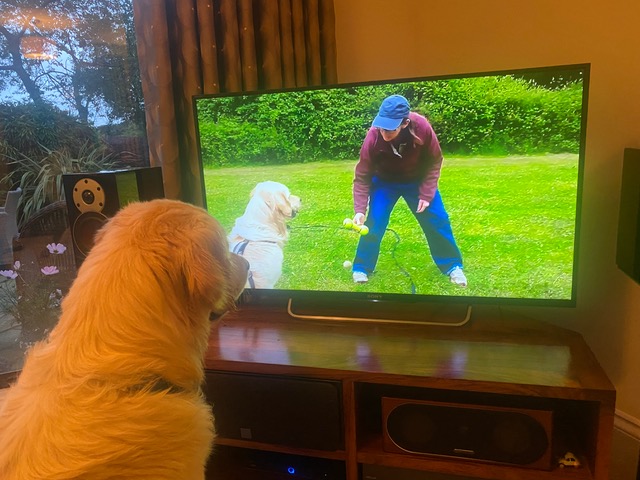How can I help you?
Whatever problems you're having, you can get in touch to see how I can help, or have a look on the pages on this website to find out about classes, group training, one-to-ones, phone and zoom consultations.
You can text or leave a voicemail message on 07805 855069
or email me at reflectionsanimaltraining@gmail.com
You can also follow me on Facebook or YouTube

Is there a secret to dog training?
Although many will try to convince you there is, it's all about the basics and a whole lot of patience and determination. There are no secrets, since dog training has been around for hundreds (thousands) of years...but it can get confusing when working out what advice to follow.
To change an animal's behaviour, there are really only three things you can do. You can reward them for doing wanted behaviours (and going through the process of shaping that behaviour until it gets to the level you're aiming for); you can prevent them from getting it wrong (invaluable while the training is catching up with real life); or you can correct them for unwanted behaviours. The trouble is it's too easy to focus on trying to 'stop' a behaviour through punishment or negative reinforcement...and apart from not being as pleasant an experience for our pets, it doesn't help them to learn what TO DO instead.
It's also important to consider your dog's needs: their health, food, water, sleep and rest, exercise, mental stimulation, drives, energy levels, and a whole host of other things. So it's all about training, and also not about training at all, but about how they live their lives with us. Confused? It's no wonder we're all searching for the 'secret' fix to our pet's issues!
I started my dog training business in 2011, and was learning about their behaviour for many years prior to that. I also have a degree in equine management, and see many comparisons between the dog training and horse training worlds (including all the disagreements that are currently raging).
I am a reward-based trainer, which means I focus on teaching a dog (or any pet) what TO DO. This improves communication and happy willingness to complete tasks and respond to cues. Do I also use punishment and negative reinforcement? Yes. Mainly for emergency situations when training hasn't caught up with real life. For example, I might say 'Leave!' in a strong tone to stop a dog eating something they shouldn't. Or I might pull a dog away from a road if they're about to step off the pavement or lunge at a car. Or I might keep tension on a lead to help teach a dog not to pull. I also use 'no' and no-reward markers as a way to speed up training and improve clear communication. But the aim is always to use rewards to teach wanted behaviour. If you have any questions about the training I do, feel free to get in touch.
A year ago I rehomed an adolescent beagle with no training. It's been a bit of a journey since then!! But we're making steady progress, and Rufus is having a great time.
I run indoor dog training classes, plus group and one-to-one training in real-life situations.
I also offer canine behaviour consultations, both in person and via phone or zoom;
and equine behaviour consultations by phone.
There's also lots of info on this page about pet behaviour...
Dogs
Horses
Cats


I welcomed Rufus the adolescent Beagle, into my life in November 2024. Living with a beagle is not for the faint-hearted as they need lots of training and supervision, or it's chaos! He's been learning all sorts of skills and tricks, and assists in classes and one-to-one sessions.


Two of the many dogs Sarah has worked with, the lovely Miss Molly, and cheeky chappy Archie!
Reward-based training creates change while being kind to your pet
Empathy - this allows us to work with our pets, not against them, always looking for ways to help them understand what we want, and to reward them for doing so. Training with kindness, consideration and understanding.
Ethics - being clear about what causes anxiety, fear, pain, discomfort and stress in our pets, and seeking ways to avoid or minimise negative experiences during training and in general life. We have a choice when we train our pets - to reward for wanted behaviour (and to plan training effectively so that's what happens) or to wait for something to go wrong and then punish them for this. Training mistakes are human errors, especially when expectations are too high. It's not fair to correct an animal with aversive punishment when that situation could have been avoided, and they could have instead been rewarded for wanted behaviour, or at least prevented from getting it wrong.
Ethology - because reward-based training is not about dogs complying with our demands 'or else', Sarah works with dogs to find out what their needs, their likes/ dislikes, and their goals are. What drives (motivates) dogs can be part of the solution rather than being a problem that needs 'fixing'.
Responsibility - just because we reward wanted behaviour, that doesn't mean we can't create rules and boundaries that will keep our pets, and other people and animals, safe. We can reach those goals by having fun along the way, and building our pets up for success, rather than always being ready to tell them off when they inevitably fall short of our expectations.
The sky's the limit - because of the flexibility and adaptability of shaping, anything is possible using reward-based training.
More about reward-based training
Click the heading above for a summary of what reward-based training is all about...the technical bits!
Testimonial
"Without Sarah’s help and support I doubt whether we would have been able to cope with the behaviour of our 18month old rescue dog. But cope we did and our much-loved canine companion is the happy outcome. And for this we will always be grateful.
Our dog is now 10 years old and over the years I have done a fair amount of reward-based training. I wouldn’t consider training any other way. I’ve found that this, perhaps more patient, approach offers some insight into the way dogs learn, process information, and deal with problems. This in turn can help us make certain aspects of training easier for the dog, if necessary. I have learnt a lot and am still learning all the time.
I think the reward- based method results in training becoming more akin to a dialogue with one’s dog, more of a shared activity which can only strengthen the bond between owner and dog. And this has been the most rewarding thing of all."
Joyce and Goldie
Creating change
To help our pets, whether that's dogs, cats, horses or smaller pets, we first need to help ourselves. That's why training sometimes doesn't work on it's own. It's a frustrating aspect of life to realise that we have to change ourselves, in order to change those around us, whether that's people or animals.
Taking time to understand an animal's behaviour is very important, and this applies to our own behaviour as well. In the same way our pets can't be perfect, neither can we. There are often lots of compromises that need to happen, as well as lots of learning on both sides of the relationship! We can't force our dogs/ horses/ cats to be perfect, in the same way that you wouldn't want other people to force us to be perfect. But if we are able to change, then we can cause our dog/ horse/ cat to change too. The key is discovering how to do that.
In Sarah's consultations, workshops, and writing she aims to help owners/ guardians/ pet parents discover the causes of their pet's behaviour, and guide them towards solutions that will make life easier (and hopefully more rewarding), for both them and their pet. Because all things in life are connected, she also takes a holistic approach, looking into diet, health, exercise and routines .
Charlie the Golden Retriever watching himself on YouTube!
